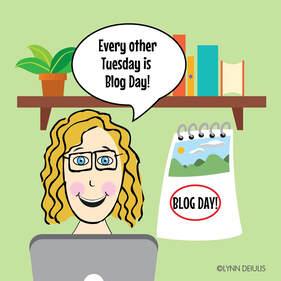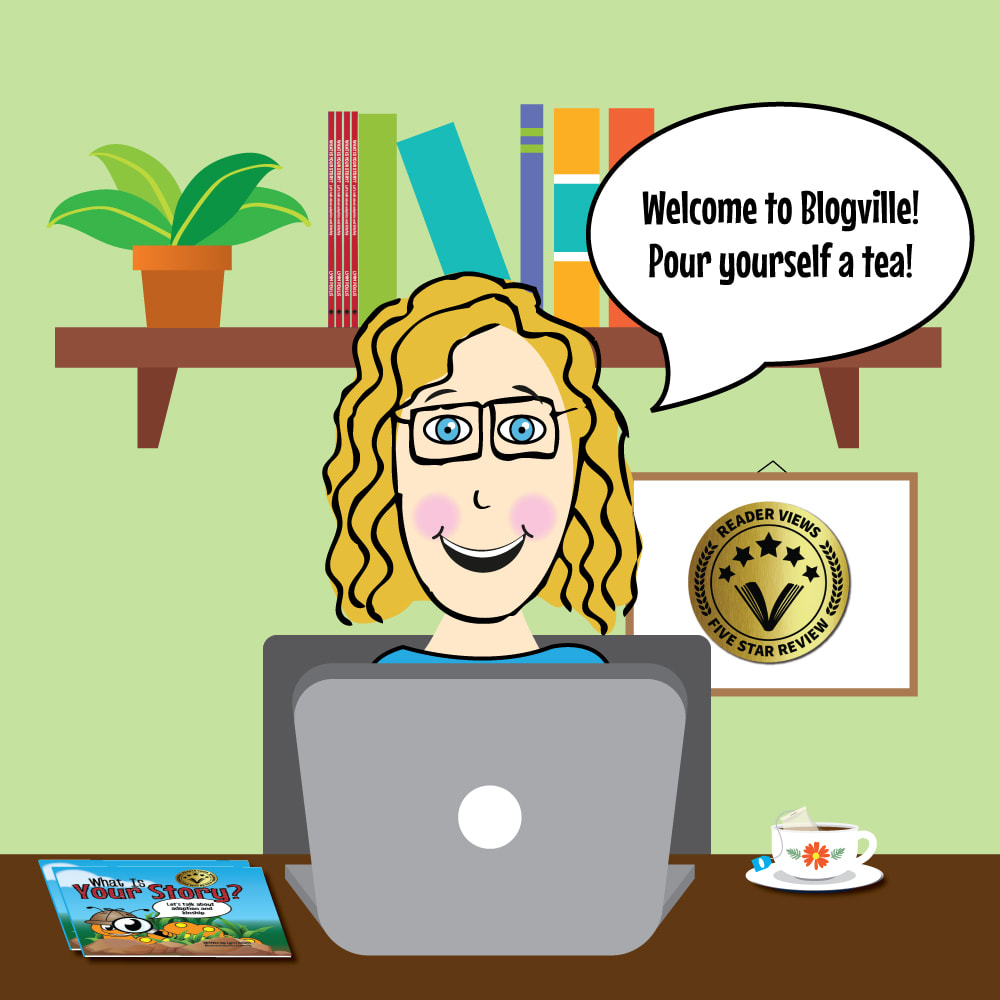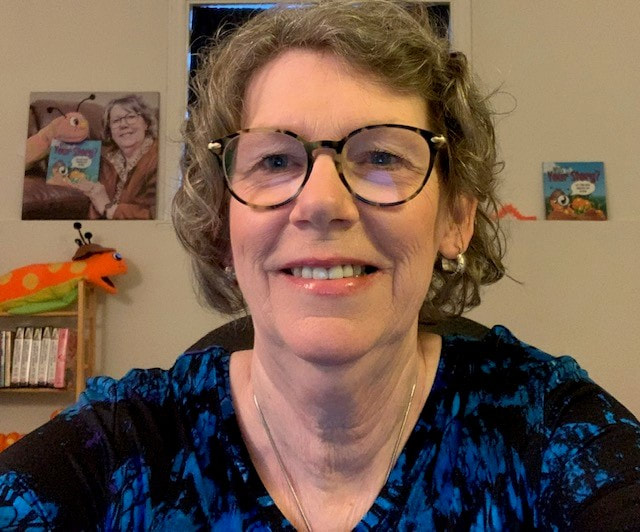|
Hello my Blogville friends! Thank you so much for coming back to visit. This blog looks at the impact society has on adopted people of all ages. I am sipping on an herbal tea as I try to express why I think some adopted children and youth spontaneously act out, and how society’s use of the word ‘adoption’ may contribute by triggering trauma responses! As an adoptee, I often find that society regularly reminds us of our adoptee status in innocent but painful ways. Some examples?
Just the other day I was completing a newspaper crossword puzzle (yes, they still exist) and the 5 letter clue was, “Take home from the pound.” You guessed it, “ADOPT” was the correct answer. Ironically the ‘A’ from the word ADOPT formed part of the word across, “FLASHINTHEPAN” (in case you are interested, the clue for that answer was “*brief success”). These are the sudden reminders of what happened to me being equated with the rescue of animals from the pound, and in this case, the other answer might well describe the relationship between my birth parents I suppose. Adoptive parents, talk with your children about how these crossword clues and ‘definitions’ make them feel? I know I wanted to tear up the paper to express my ongoing distaste for being equated with an animal. Instead, I decided to blog about it as others out there might be feeling these things too (not that many people do crosswords anymore lol). The humane society does wonderful work and demonstrates a true dedication to the safety of animals. However, their ‘pet adoption’ confuses me about my value as a person compared to that of a kitten or a puppy. They even use the same terminology as some people use regarding children, such as; “waiting for adoption”, “waiting for their forever home”. They have “foster homes” for animals and complete an adoption application process prior to releasing an animal to a prospective owner. Our local news has a segment with the local SPCA Animal Centre and the whole purpose is to recruit people willing to adopt the animals they showcase. Depending on where my self esteem is when this segment comes on, I often have to leave the room. I continually wonder if a child or youth in care is watching this segment too, and if so, what their thoughts are about whether a family will be found for them, or if a prospective adoptive family might choose a kitten or puppy instead. When you notice your adopted child watching a humane society public service announcement, talk to them about the word ‘adoption’, what it means to you, and what the word means to them. Whether you are a foster, kinship, or adoptive family, talk to the children and youth in your home about how society sees and uses the term adoption very lightly, but then be sure to follow up by taking the time to explain that ‘adoption’ is a really big word in your family, with a very big meaning. Speaking of adoption promotional campaigns, I do not believe that anyone can truly promise ‘forever’ (as in ‘forever families’ or ‘forever home’) to children and/or youth, simply because life happens and we all know life is unpredictable. Just think of the impact of separation and divorce on families, or the accidental or sudden death of otherwise healthy parents. Even birth children cannot be promised a ‘forever home’ or ‘forever family’, not even by the very people that brought them into this world. Frankly, instead of ‘waiting for their forever family’, I would prefer that adoption promotions regarding children and youth simply say, “waiting for a family”. It is noteworthy to mention that there are some posters out in society, many of them associated with the Dave Thomas Foundation For Adoption, that have more positive messaging such as: “May I have a few years of your time?”; “You may not have seen my first steps, but you will see me walk down the aisle.”; and “Never too old for family” (referring to youth adoptions). “Adopt a Highway” signs are another emotional challenge for me as an adoptee. “Adopt a Highway” is a program in Canada and the United States wherein some provinces and states encourage individuals or community groups to clean up the sides of a specific section of the highway by removing litter and garbage. Often, much to my dismay, they even refer to the volunteers belonging to these groups as ‘adopters’ in their promotional descriptions. Yikes! I mean they certainly CAN use it, but my brain takes it to so many different levels, such as ‘adopters’ taking care of something (sides of a highway) that does not technically belong to them. We won’t even get into the fact that “adopters” are picking up trash or litter left on the side of the road by other people. Though I have spoken about the “Adopt-A-Highway”program before in terms of the reactions I feel every time I drive past one of these signs, I think it warrants repeating. The sign’s message to me is that my own province sees fit to reduce my value as an adoptee to that of a neglected highway; a strip of tarmac that needs its garbage removed by volunteers. It also reduces ‘adopters’ to people who pick up and appropriately dispose of trash. So please, talk with your children about those signs. Explain how the program is meant to find people that want to help take care of important things, or about how people can work together to make a great thing happen just like birth parents, adoption workers, and adoptive families work together to plan for adoptions. Please do not just drive by those signs and let your child feel what I still feel when I see them, instead, ask them how that sign makes them feel. Remember in school when you did not raise your hand in class unless you were pretty sure you knew the correct answer? Remember how it felt when the teacher called on you even when your hand was not raised? Remember how unprepared you felt and how you did not want to stand out in the class? Often, adoptees feel like that just by living in our society, and they too simply do not want to stand out. Every day an adopted person somewhere is faced with the laissez-faire attitude of society toward the use of the word ‘adoption’. Politicians adopt policies, scientists adopt positions, companies adopt practices, and so on. Families adopt children. Adopted children and youth will hear and/or see the word ‘adoption’ both in context, and out of context everywhere. Your job, as adoptive family members and workers is to prepare them for this exposure so they do not feel reduced to the same status as neglected or unwanted animals, strips of highway, experiments, policies and procedures, etc. Adoptees face enough rejection at the mere fact they were freed for adoption, they do not need to feel more through society’s use of a word that to them means, “Family.” Encourage your child to talk to you about these events, preparing them for ‘raising their hands’ if you will. Help your children and youth be prepared for posters and signs that are out there, talk about people using the same adoption terminology when referring to rescuing animals, as well as preparing them for managing *inappropriate questions about them, their birth parents, and/or their adoptive parents (*more about this in an upcoming blog). An “ounce of prevention” will help your child or youth, and yourself, be ready to handle these emotional roller coasters! I’m glad you visited today, thank you for stopping by, and I look forward to ‘seeing’ you every second Tuesday of each month. Follow me on Goodreads for my blogs to come to you via email. As ever my Blogville friends, I welcome and look forward to your comments here or by email at [email protected]
0 Comments
Leave a Reply. |
Read More
July 2024
Categories |



 RSS Feed
RSS Feed